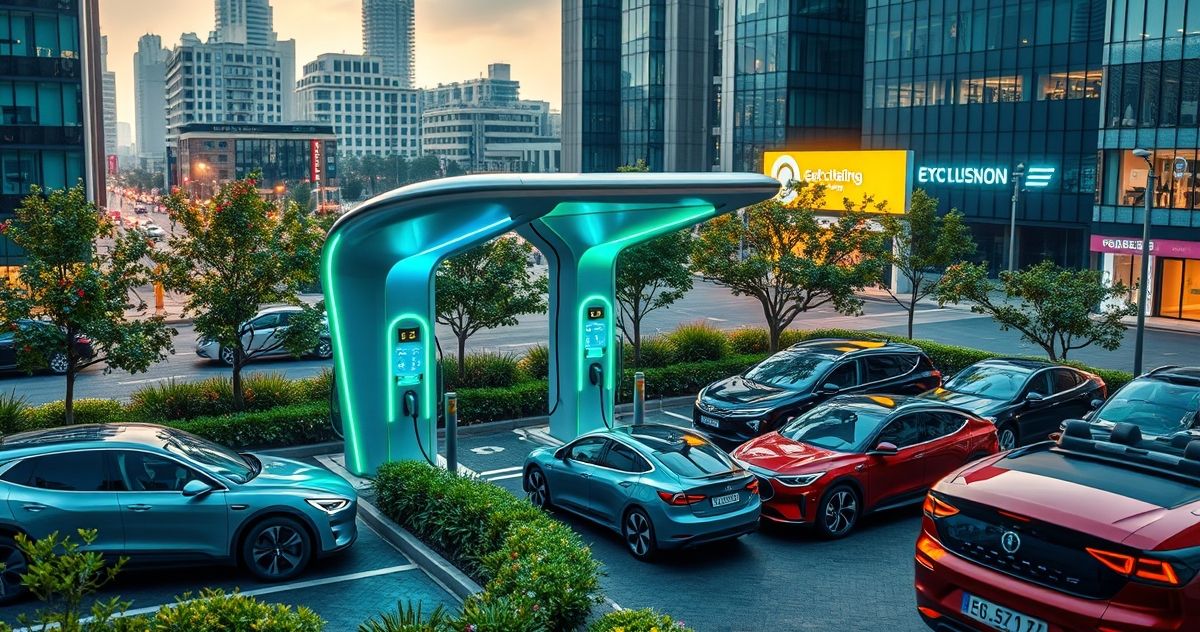Understanding the EV Charging Infrastructure Tax Credit
The transition to sustainable transportation has become a global imperative, and the rise in electric vehicle (EV) adoption is a significant component of this shift. To support this transition, governments have introduced various incentives, including the EV Charging Infrastructure Tax Credit, to encourage the installation and use of electric vehicle charging stations. This comprehensive tax incentive aims to offset the costs associated with installing charging infrastructure, promoting wider accessibility and usage of electric vehicles.
Primary Purpose of the EV Charging Infrastructure Tax Credit
The primary purpose of the EV Charging Infrastructure Tax Credit is to reduce the financial burden on individuals and businesses who install EV charging stations. This initiative aims to foster an increase in electric vehicle use, reduce greenhouse gas emissions, and support the development of a sustainable transportation ecosystem. By offering tax credits, the government incentivizes both private and public investments in EV infrastructure, accelerating the adoption of electric vehicles as a viable alternative to fossil fuel-based transportation.
Key Features or Components
- Eligibility: The tax credit is available to both individuals and businesses. Typically, taxpayers who install qualified EV charging equipment at their business, public, or residential locations can apply.
- Credit Amount: The credit generally covers a percentage of the cost of the charging equipment and installation. The exact amount can vary based on the type and location of the installation, often ranging from 30% of the costs up to a specified limit.
- Types of Equipment: Not all charging equipment is eligible. The equipment must be certified and capable of charging electric vehicles efficiently.
- Installation Dates: The credit is typically applicable for equipment placed in service within a specified time frame, emphasizing current and future installations rather than retroactive claims.
- State-Specific Credits: Some states offer additional incentives or credits that can be combined with federal incentives, enhancing the financial benefits for installers.
Filing or Compliance Requirements
To claim the EV Charging Infrastructure Tax Credit, proper documentation and compliance with filing requirements are crucial. The following steps are typically necessary:
- Tax Form: Individuals and businesses must file IRS Form 8911 (Alternative Fuel Vehicle Refueling Property Credit) along with their tax returns. This form details the expenses incurred and calculates the eligible credit amount.
- Documentation: Taxpayers must retain all invoices, receipts, and proof of installation, ensuring the equipment meets the qualifying standards for the credit.
- State Compliance: If applicable, additional state forms and documentation may be required to claim state-specific incentives.
Penalties or Consequences for Non-Compliance
While enjoying the benefits of the EV Charging Infrastructure Tax Credit, it is imperative to adhere to compliance regulations. Non-compliance can lead to several consequences:
- Denial of Credit: Inadequate documentation or failing to meet the qualification criteria may result in disqualification from the credit, leading to increased tax liabilities.
- Audits: Incorrect or fraudulent claims can trigger tax audits, adding to the administrative burden and potential penalties.
- Repayment: If the IRS determines that the tax credit was claimed incorrectly, the taxpayer may have to repay the credit amount, potentially with interest.
Importance and Significance
The EV Charging Infrastructure Tax Credit plays a pivotal role in the advancement of electric vehicle adoption. The incentives provided ease the financial barriers associated with installing charging stations, thereby promoting more substantial investment and interest in electric vehicles among consumers and businesses alike. This tax credit not only aids individual taxpayers but also aligns with broader governmental goals for environmental sustainability and energy independence.
By understanding and utilizing the EV Charging Infrastructure Tax Credit, businesses can reduce their tax liabilities while contributing to an essential cause. The support of charging stations encourages the development of an accessible network, vital for achieving widespread electric vehicle usage. Furthermore, by alleviating the financial pressures of installation, businesses can explore making charging stations available to employees and customers as an added benefit, thereby improving their own environmental footprint and company reputation.
In recent years, environmental policies and tax credits have become central to legislative agendas worldwide, emphasizing clean energy and sustainable practices. The development and distribution of EV infrastructure is a critical element within these policies, and tax credits like this one will continue to evolve and expand to meet growing demands and emerging technologies. As such, staying informed about eligibility requirements and changes to the tax code is crucial for taxpayers aiming to maximize their benefits while supporting essential environmental goals.
Ultimately, the strategic implementation of the EV Charging Infrastructure Tax Credit represents a significant step forward in the global pursuit of greener transportation solutions. It provides the dual benefit of reducing carbon footprints while empowering businesses and individuals to adopt technologies that pave the way for a sustainable future. This initiative will likely increase in importance as electric vehicles gain popularity, making comprehension and utilization of such tax credits vital to eco-conscience enterprises and consumers.

